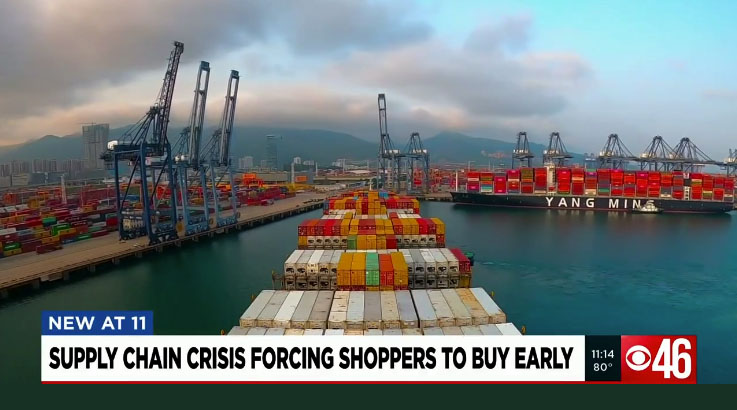According to Chelsea White, professor in the Georgia Tech Manufacturing Institute, “supply chains don’t like disruptions—especially low-cost supply chains—and they’re all low cost.”
White is the Schneider National Chair in Transportation and Logistics and professor in the H. Milton Stewart School of Industrial and Systems Engineering at Georgia Tech.
“When demand is smooth and supply is balanced with demand, supply chains run well and inexpensively,” said White.
However, covid has caused dramatic drops and increases in demand, thus adding to supply disruptions. A rapid recovery in the United States has helped spike that dramatic increase.
In addition to dramatic demand flucuation, the supply side of this was also interrupted with shipping workers in China contracting covid, reducing the capacity to move goods out of major Chinese ports. With the dramatic rise in demand, congestion has been causing further delays even though the supply chains have plenty of capacity according to White.
White says some of this lack of smooth supply and demand is self-inflicted, “container ships have gotten much bigger, naturally causing surges all over the freight transportation system – ocean carriers, rail, and trucks. The tariffs kicking in caused ‘front loading,’ which we’re seeing now to ensure shelves will be stocked during the holidays at the end of the calendar year.”
“We’re finding out that the global freight transportation system is less resilient than originally thought,” said White. “My prediction for 2021 is there will be toys on the shelves for the Christmas holidays, but perhaps not as many toys and their prices may be higher.”
Chelsea White, along with other experts, were recently interviewed by CBS News in Atlanta, Georgia. You can view White’s interview and learn more about the supply chain crisis topic here: CBS46 News, Supply Chain Crisis Forcing Shoppers to Buy Early.

